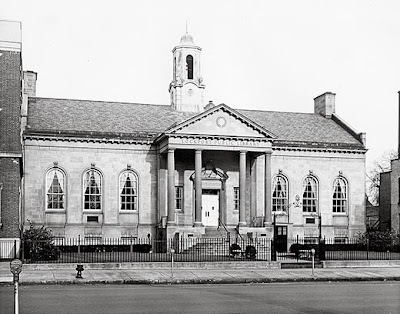from 8:30 to 1 p.m…I hand write and then I type.
(By Landon Nordeman for Smithsonian Magazine.)
Oates has a prolific pen, primarily publishing novels, but also short stories, poetry, plays, and articles. She has published well over 50 books. In the past few months alone, she has brought out two novels [A Fair Maiden (2010) and Little Bird Of Heaven (2009)]. Not bad for a 71-year-old, who published her first book way back in 1963. Compared to her, Charles Dickens was a punk, with only a measly 14 completed novels to his credit, though to be fair, his final curtain came at age 58.
Oates, like Dickens, has a strong sense of locale: “Writers, particularly novelists, are linked to place. It’s impossible to think of Charles Dickens and not to think of Dickens’ London; impossible to think of James Joyce and not to think of Joyce’s Dublin; and so with Thomas Hardy, D. H. Lawrence, Willa Cather, William Faulkner, Eudora Welty, Flannery O’Connor-each is inextricably linked to a region….We are all regionalists in our origins, however ‘universal’ our themes and characters, and without our cherished hometowns and childhood landscapes to nourish us, we would be like plants set in shallow soil. Our souls must take root-almost literally.”
Oates, born in 1938, has, in the Smithsonian article, created a mesmerizing account of her early life in Lockport, a small town, in upstate New York. Among the places she discusses is the Lockport Public Library, which she fondly remembers visiting when she was seven or eight years old. For the young Joyce Carol Oates, the local public library was “A Garden of Earthly Delights.”
She was first taken to the public library by her grandmother in the mid-1940’s. This library pilgrimage was for her a “vivid and hallucinatory dream,” not unlike her experiences at in the local movie house, aptly named The Palace Theatre. “In the shadowy opulence of the Palace, as in an unpredictably unfolding dream, I fell under the spell of movies, as I’d fallen under the spell of books a few years earlier.”
She describes her library as a sacrosanct temple devoted to the higher religion of the printed word. She recalls the children’s area as a visual feast: “what is most striking… are the shelves and shelves of books-bookcases lining the walls-books with brightly colored spines-astonishing to a little girl whose family lives in a farmhouse in the country where books are almost wholly unknown. That these books are available for children-for a child like me-all these books!-leaves me dazed, dazzled.” She recalls the experience tactilely: there was “no greater happiness than to make my way along the seemingly infinite shelves of books,… drawing my forefinger across the spines.” On this first visit, she has a divine revelation, “a special surprise,” when she is told that she can “‘withdraw’ books from this library,” all with the simple passport of a library card, through “some magical provision” by her grandmother, Mrs. Blanche Woodside, who met the simple qualification of Lockport residency.
This first transcendent experience is why the local library has become “an illumination in my life.” She goes on in delirious, deliberately dreamlike terms: “In that dimension of the soul in which time is collapsed and the past is contemporaneous with the present” the library setting remains for her an epiphany, especially as she grew up in a hardscrabble, rural community that was “lacking a common cultural or aesthetic tradition.” And, coming on the heels of the Great Depression, which instilled in her a strong work ethic, “I was mesmerized by books and by what might be called ‘the life of the mind’: the life that was not manual labor, or housework, but seemed in its specialness to transcend these activities.” As a self-described “farm girl,” she naturally had her “farm chores,” but she diligently included reading in her “alone” activities, when she wasn’t exploring “the fields, woods and creek side,” or otherwise sowing her wild oats.
 “Locks, Looking East, Lockport, N.Y.” (ca late 1940’s).
“Locks, Looking East, Lockport, N.Y.” (ca late 1940’s).[Courtesy Frank E. Sadowski Jr., The Erie Canal (Website).]
Giclée Print, 2004.
(Courtesy Celestial Timepiece:
A Joyce Carol Oates Home Page.)
Oates profiled McVeigh for a piece in the New Yorker in 1995: “Like me, McVeigh grew up in the countryside beyond Lockport….Like me, he would have been identified as ‘from the country’ and very likely, like me, he was made to feel, and may have exalted in feeling, marginal, invisible. He may have felt powerless, as a boy. He may have been watchful, a fantasist. He may have told himself, Wait! Your turn will come.” Not surprisingly, her just-published novel, Little Bird of Heaven, is “set in a ficticious [sic] upstate New York town that bears a strong resemblance to the Lockport of her childhood.”






